Interdisciplinary Training Program for Biostatisticians.
This NIH-funded program provides training in interdisciplinary research, reproducibility methods, and the responsible conduct of research while supporting students in their professional and career development.
About Us
The Interdisciplinary Training program for Biostatisticians is built upon the requirements of the PhD doctoral program in Biostatistics at Boston University. In addition to the standard requirements of the Biostatistics PhD program, the program requires trainees to take a course in biological sciences, complete three research rotations to gain experience in different areas of application of biostatistics, complete training in reproducible research, and complete comprehensive responsible conduct of research training, including an internship at the Institutional Review Board at Boston University Medical Campus. Trainees also benefit from monthly group meetings with the Co-Directors to discuss their progress, receive career development training, and learn from alumni. Trainees are usually appointed to the program for the first two years of their PhD training. Once completed, the trainees are matched with and supported by a graduate research assistantship.
Main Training Requirements
Coursework
Trainees follow the usual Biostatistics PhD course progression. In addition, they are required to take one course in biological sciences. Two popular course options with trainees are: SPH EH710 Physiological Principles for Public Health and GMS GE 701 Principles of Genetics and Genomics.
Reproducible Science Training
All trainees complete formal and informal training in the conduct of Reproducible Science. Trainees are exposed to methods for enhancing reproducibility through the required Biostatistics coursework, structured training, and their research rotations. The Biostatistics coursework includes introductions to statistical programming tools that can facilitate code sharing and reproducible reporting of statistical analyses including R notebooks, R markdown, SAS PROC: StatRep and GitHub. The trainees must also complete an online course: Principles, Statistical and Computational Tools for Reproducible Science. The concepts introduced in the Biostatistics coursework and the online course are solidified during the research rotations. Trainees are required to present progress in their rotation during monthly meetings with the Co-Directors and explicitly address issues related to reproducible research they encountered during their rotations in each final report.
Research Rotations
Trainees are required to actively participate in three one-semester rotations chosen from at least two of the general research areas of 1) observational studies, 2) clinical trials, 3) genetics, and 4) bioinformatics. These rotations are designed to provide the trainees with broad exposure to the various types of biomedical research and the role that biostatisticians play in multidisciplinary teams. Each rotation lasts one semester and requires students to commit a total of 120 hours (~10 hours per week for ~12 weeks). This provides trainees in depth exposure to multiple areas of application in biostatistics, which is valuable training to these students to both select an area of thesis research and to develop a broader set of skills and expertise. Biostatisticians are frequently involved in research in a wide variety of areas of application throughout their careers, so this training is particularly valuable.
Responsible Conduct of Research (RCR)
This comprehensive program includes three components. Component 1 (RCR1) consists of human subjects protection certification, which is completed when entering the program. Component 2 (RCR2) is the Boston University plan for Instruction in the Responsible Conduct of Research and Mentoring of Graduate Students and Postdoctoral Researchers that is compliant with updated NIH regulations. It includes 4 in-person workshops, completed in the first year and once every 4 years students remain in the program. The third component (RCR3) is an IRB internship that provides training to Biostatistics trainees and to medical fellows pursuing clinical research. Trainees are assigned to one of four IRB panels and attend all meetings of their assigned panel. In the first two IRB meetings, trainees attend as listeners. For the 2nd two meetings, they are given protocols to review and present a summary presentation of each study. Trainees are required to complete the IRB internship and write a final report. At the completion of the internship, trainees will have gained practical experience by participating in an ethics panel, and will solidify their ability to 1) Define federal regulations, state laws, and IRB policies and procedures that govern human research; 2) Outline the IRB review processes to protect the rights and welfare of human subjects; 3) Define investigator responsibilities in conducting clinical research; and 4) Evaluate a research protocol submitted to the IRB.
Meet Our Team
Directors
Kathryn Lunetta (klunetta@bu.edu)
Laura F White (lfwhite@bu.edu)
Our Trainees
Lauren Delp
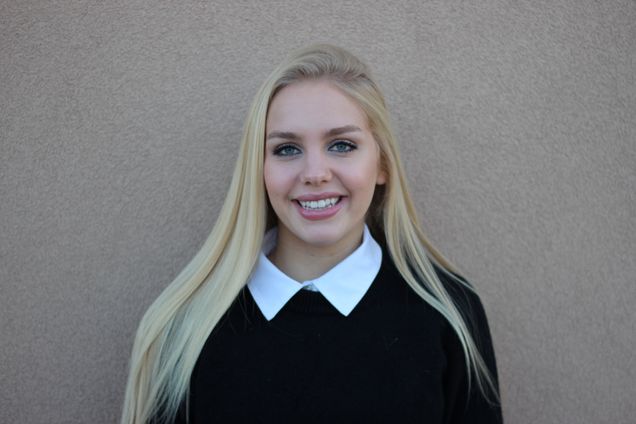 Years in Training Grant: 2024-current
Years in Training Grant: 2024-current
Home State: Ohio
Undergraduate Institution: Boston University
Degree: B.S. in Health Science
Graduate Institution: Boston University
Degree: M.S. in Biostatistics
Jung Lee
 Years in Training Grant: 2024-current
Years in Training Grant: 2024-current
Home State: Massachusetts
Undergraduate Institution: Boston University
Degree: B.S. in Health Science
Graduate Institution: Boston University
Degree: M.S. in Applied Biostatistics
Hannah Sullivan
Undergraduate Institution: Emmanuel College
Degree: B.S. in Biostatistics
Lucas Takayoshi
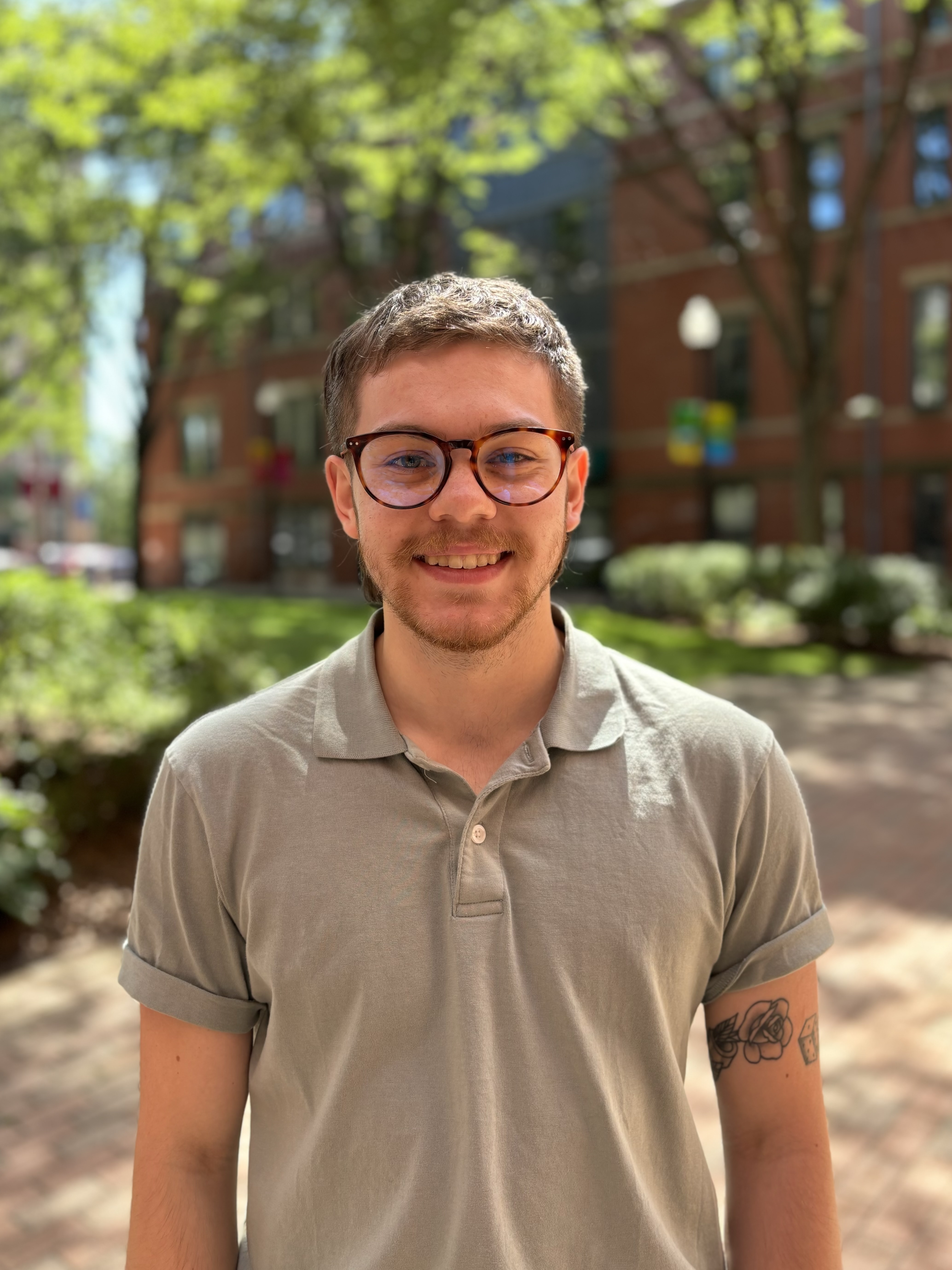 Years in Training Grant: 2024-current
Years in Training Grant: 2024-current
Home State: Washington
Undergraduate Institution: Western Washington University
Degree: B.S. in Statistics
Francesca Zumpano
 Years in Training Grant: 2024-current
Years in Training Grant: 2024-current
Home State: New Jersey
Undergraduate Institution: College of New Jersey
Degree: B.S. in Mathematics & Statistics
Graduate Institution: Rutgers University
Degree: M.S. in Biostatistics
Jordan Ahn
 Years in Training Grant: 2023-current
Years in Training Grant: 2023-current
Home State: New Jersey
Undergraduate Institution: Boston University
Degree: Biomedical Engineering
Emma Risner
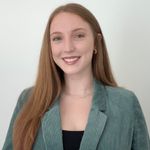 Years in Training Grant: 2023-current
Years in Training Grant: 2023-current
Home State: Florida
Undergraduate Institution: University of Florida
Degree: B.A. in Mathematics
Lia Rotti
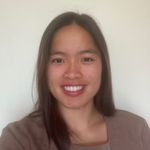 Years in Training Grant: 2023-current
Years in Training Grant: 2023-current
Home State: Vermont
Undergraduate Institution: Tufts University
Degree: B.S. in Applied Mathematics
Michael Figueroa
 Years in Training Grant: 2020-2021
Years in Training Grant: 2020-2021
Home State: Puerto Rico
Undergraduate Institution: University of Puerto Rico—Rio Piedras campus
Degree: Mathematics
John Cannon
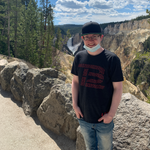 Years in Training Grant: 2021-2023
Years in Training Grant: 2021-2023
Home State: Utah
Undergraduate Institution: Brigham Young University
Degree: B.S. in Economics
Genevieve Dupuis
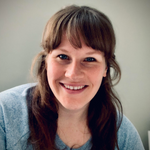 Years in Training Grant: 2021-2023
Years in Training Grant: 2021-2023
Home State: Montana
Undergraduate Institution: University of Notre Dame
Degree: Mathematics
Brooke McGinley
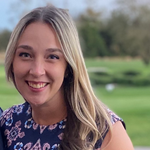 Years in Training Grant: 2021-2023
Years in Training Grant: 2021-2023
Home State: New Jersey
Undergraduate Institution: Rowan University
Degree: B.S. in Mathematics, B.A. in Computing & Informatics; Minors: Statistics & Operations Research, Data Science
Julia Gallini
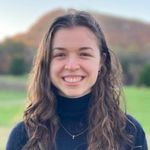 Years in Training Grant: 2022-2024
Years in Training Grant: 2022-2024
Home State: Virginia
Undergraduate Institution: UNC Chapel Hill
Degree: Biostatistics and Mathematics
Lindsay Salvati
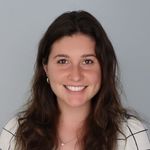 Years in Training Grant: 2022-2024
Years in Training Grant: 2022-2024
Home State: Connecticut
Undergraduate Institution: Connecticut College
Degree: B.A. in Mathematics with a concentration in statistics, minored in psychology and linguistics
Our Alumni
Taylor Mahoney

My name is Taylor Mahoney and I am currently a PhD candidate in the department of biostatistics at BU. I am originally from Charlestown, MA and I received my BS in Biostatistics from Simmons University in Boston, MA as a first-generation college student.
Currently, I am working on finishing my PhD in Biostatistics and anticipate graduating in the fall 2021 semester. For the past few years, I have been a research assistant at the Boston University Statistics and Consulting Unit over on the Charles River Campus with my advisor, Dr. Joe Massaro. Working at the Stat Unit has exposed me to a wide variety of statistical work – everything from longitudinal and epidemiological studies using data from the Framingham Heart Study to working on the design and analysis of clinical trials and rare disease clinical trials. While I have learned a great deal in terms of statistical methodologies, most importantly I have gained a great deal of experience with communicating statistical results to non-statisticians such as physicians, pharmaceutical sponsors, and researchers. In addition to my research assistantship, I am also a co-instructor for the Boston University Summer Institute for Research Education in Biostatistics (SIBS) for undergraduates. Upon graduating, my goal is to work at either a pharmaceutical company or a contract research organization in order to continue working on clinical trials and also explore more research opportunities for statistical methods in clinical trials.
Not only did the training grant improve my educational experience, it also changed my mind on what area I wanted to focus on. In high school, I became fascinated by Punnett squares and how traits were passed on from parent to offspring, but I quickly learned in college that biology was not what I was passionate about – instead, it was the blending of mathematics and science that intrigued me. I first learned about statistical genetics when I did the SIBS Program at Boston University as an undergraduate, and instantly I was excited to learn that I could still pursue genetics but from a statistical standpoint. When I first started in the PhD program, I was set on pursuing statistical genetics. Through the training grant, I was able to do semester-long rotations in statistical genetics, observational studies, and clinical trials. For my clinical trials rotation, I got to work at Prometrika, LLC (a contract research organization (CRO)) in Cambridge, MA, and it exposed me to this whole world of clinical trials that I was unaware of. After doing this rotation and seeing how clinical trials work in the real world and all of the research that is going on with trials, I decided to take additional courses in clinical trials in the biostatistics department which really fed my curiosity about statistical methods in clinical trials. Without the training grant and being able to do that rotation at Prometrika, I don’t think I would have ended up pursuing clinical trials. While I still do love genetics and hope that one day I can blend my knowledge of trials with genetics, I am so happy with the choice that I made to switch my focus because now I get to focus my research on a really intriguing class of trials known as adaptive design clinical trials.
The biggest piece of advice I can offer for any incoming PhD student (training grant or not) is this: take advantage of the cutting-edge research that is happening all around you at BUSPH, and the fact that you are surrounded by world-renowned faculty and researchers. Put yourself out there, whether it be with other students or faculty members, and find research going on that excites you and get involved! Doing this could ultimately change your academic focus for the better, and help you find an exciting dissertation topic that you are passionate about; you are going to want to be passionate about your dissertation research because it really helps to motivate you to excel in your work! Be open to exploring new areas and learning new ways of doing things. Lastly, choose a dissertation advisor and committee that not only are excited about your research but are also enjoyable to work with and are supportive – having the right advisor and group of committee members make the world of a difference in your PhD experience.
Zachary Baucom
 I am currently a 4th year student in the Boston University Biostatistics PhD program. I work with Professor Yorghos Tripodis on dementia related research with a focus on Alzheimer’s disease and chronic traumatic encephalopathy (CTE). Coming into the PhD program I only knew that 1.) I like to help people and 2.) I like statistics, but I wasn’t sure which area of biostatistics to focus in. After doing rotations in genetics and genomics I met up with Yorghos for a rotation in observational studies. This rotation changed the whole trajectory of my education as I was able to find an area of research that is very interesting to me and is now the basis of my thesis. I also found a perfect fit in an advisor who I likely would not have been in much contact with otherwise. To those starting the training grant I would advise networking with students and faculty as much as possible when finding rotation opportunities. Finding a project that is interesting to you and is with an advisor you enjoy working with can go a long way in determining your future RA and thesis work. The training grant provides an amazing opportunity to focus on course work while exploring new and interesting areas of research!
I am currently a 4th year student in the Boston University Biostatistics PhD program. I work with Professor Yorghos Tripodis on dementia related research with a focus on Alzheimer’s disease and chronic traumatic encephalopathy (CTE). Coming into the PhD program I only knew that 1.) I like to help people and 2.) I like statistics, but I wasn’t sure which area of biostatistics to focus in. After doing rotations in genetics and genomics I met up with Yorghos for a rotation in observational studies. This rotation changed the whole trajectory of my education as I was able to find an area of research that is very interesting to me and is now the basis of my thesis. I also found a perfect fit in an advisor who I likely would not have been in much contact with otherwise. To those starting the training grant I would advise networking with students and faculty as much as possible when finding rotation opportunities. Finding a project that is interesting to you and is with an advisor you enjoy working with can go a long way in determining your future RA and thesis work. The training grant provides an amazing opportunity to focus on course work while exploring new and interesting areas of research!
Carlee Moser
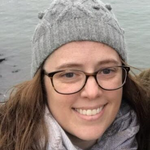
I have an academic appointment at the Harvard T.H. Chan School of Public Health where I work as a Senior Research Scientist within the Center for Biostatistics in AIDS Research (CBAR). My primary role within in CBAR is as a senior statistician with the AIDS Clinical Trials Group (ACTG), which is a large, international clinical trials network funded by NIAID/NIH. Within the ACTG most of my research focuses on metabolic complications of HIV and randomized clinical trials (RCTs), but I also work on various observational studies using our extensive database and specimen repository. As a senior statistician, I am responsible for collaborating with clinical investigators to develop clinical trials protocols and statistical analysis plans, overseeing monitoring of ongoing RCTs, performing interim, final, and secondary analyses, and assisting with abstract and manuscript development. Recently, I took on the role of lead statistician working on the Operation Warp Speed platform trial of potential outpatient treatments for COVID-19. This trial is a major initiative of a collaboration between NIH, FDA and pharmaceutical companies known as ACTIV (Accelerating COVID-19 Therapeutic Interventions and Vaccines). The aim is to evaluate candidate monoclonal antibodies, and other immunological and antiviral agents using a standardized protocol with an adaptive design, including a possibly seamless phase 2 to phase 3 trial component.
The training grant was a wonderful opportunity to get exposure to different areas of biostatistics, including statistical genetics and clinical trials. Through my rotations on the training grant, I realized I had a strong interest in observational studies, which led me to my research assistantship with the Framingham Heart Study and my thesis work on infectious disease outbreaks. Ironically, I did not think clinical trials were for me, but here I am! It was great to have some exposure to RCTs prior to my role at CBAR.
My best advice would be to have an open mind. I had a lot of preconceived notions about classes or areas of biostatistics I would like or not like, and I often surprised myself. Getting a PhD can feel like a long journey, but just take it step by step and before you know it you’ll be writing a brief summary for the BU biostats website, being 8 years out from your PhD! I guess my last piece of advice is pick a thesis topic that you find really interesting, that piques your curiosity. I found that even on the more challenging days, I truly loved what I was working on so it helped keep me going.
Jeremiah Perez
 I am currently a Senior Biostatistician II at Pharmaceutical Product Development (PPD). It is a global contract clinical research organization (CRO) based in Wilmington, North Carolina, but I work remotely from my home in Orlando, FL. As part of my role at PPD, I serve as the lead statistician and senior statistical reviewer for several clinical research studies across a wide range of therapeutic areas, including, but not limited to, oncology, infectious diseases, and ophthalmology.
I am currently a Senior Biostatistician II at Pharmaceutical Product Development (PPD). It is a global contract clinical research organization (CRO) based in Wilmington, North Carolina, but I work remotely from my home in Orlando, FL. As part of my role at PPD, I serve as the lead statistician and senior statistical reviewer for several clinical research studies across a wide range of therapeutic areas, including, but not limited to, oncology, infectious diseases, and ophthalmology.
The program’s research rotations allowed me to explore and gain hands-on experience in different research areas where biostatistics is applied. The work I did for some of my rotations even led to my very first publications. My experience with the training grant program also helped me in choosing a research area for my Ph.D. dissertation work. The program provided the opportunity to find interdisciplinary mentors, which was very helpful to me as a first-generation college student and someone who wanted to learn more about the different opportunities available in Biostatistics.
My advice to an incoming training grant/PhD student would be to be open-minded and take advantage of this opportunity by exploring and appreciating the interdisciplinary nature of Biostatistics. Take the time to attend social events and/or be part of student groups (e.g., Biostatistics Student Association, Student Chapter of the ASA). Form study groups and get to know your classmates because the PhD experience is like a rollercoaster ride (with highs and lows), but it is more fun when you can experience the ride together.
Our Mentors
- Bellamy Scarlett
- Cabral Howard
- Carvahlo Luis
- Cheng Debbie M.
- Cheng Huimin
- Choi Seung Hoan
- DeStefano Anita L.
- Doros Gheorghe
- Horsburgh Charles
- Jenkins Helen
- Kolachalama Vijaya
- LaValley Michael P.
- Liu Ching-Ti
- Liu Chunyu
- Lodi Sara
- Lok Judith J.
- Lunetta Kathryn L.
- Milton Hicks Jacqueline
- Mohammed Shariq
- Patil Prasad
- Peloso Gina
- Shafie Khorassani Fatema
- Tripodis Yorghos
- Trinquart Ludovic
- Weber Lukas
- Weinberg Janice
- White Laura
Apply
Individuals must be accepted to the PhD program in Biostatistics, and be a US citizen or permanent resident in order to be eligible for the training grant.
To be considered for the training grant, individuals must apply for the PhD program in Biostatistics. Students can find more information about applying to the PhD program here.
Seminars/Events
Join us for a virtual information session.
Contact Us
For more information about the program, please email biostat@bu.edu.